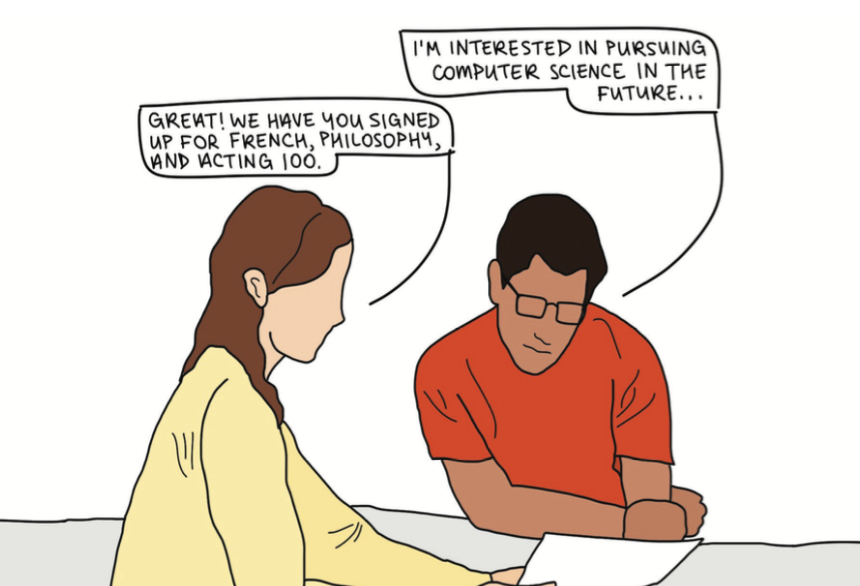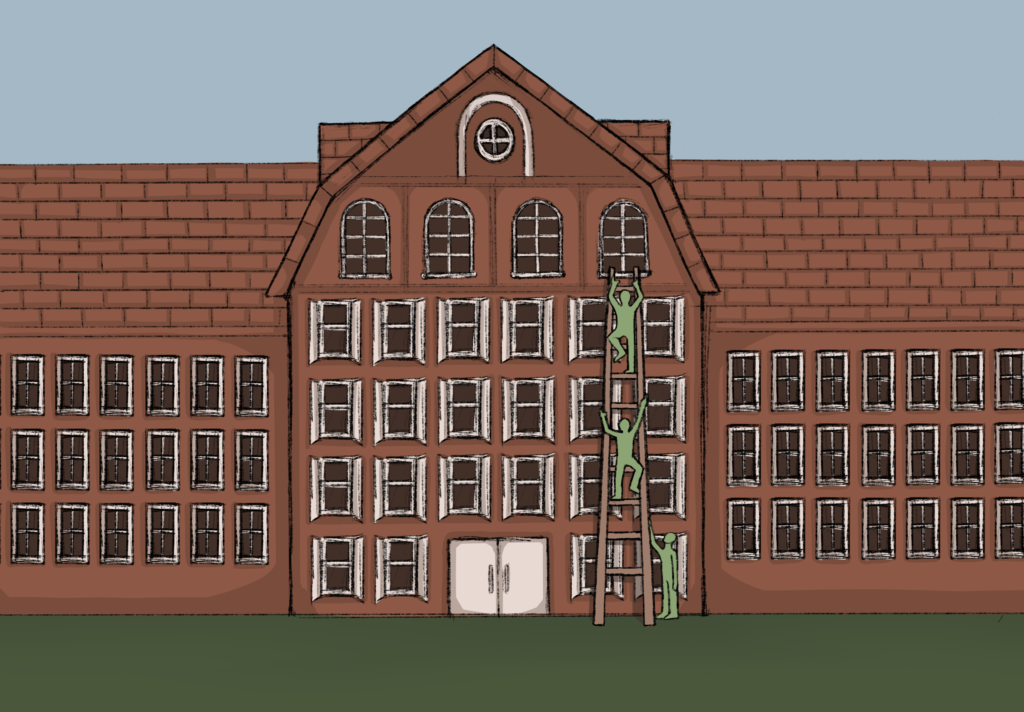Imagine taking Spanish 100, Chinese 100, and French 100 in three consecutive years. That would likely not prove very productive.. A student would be unlikely to learn enough material to sustain a meaningful conversation and, odd are, he or she would soon forget whatever small elements of each language were studied. So it seems to make sense that Choate requires its students to complete at least three years of a single language. That’s a sustained study.
What needs improvement instead are the curriculum requirements in the Arts, Science, and HPRSS departments. The justification for our current system of diploma requirements is reasonable because it lets students dive into a wide array of subject matters they might not otherwise explore. However, students would benefit much more from a deep knowledge of a few areas than from a superficial knowledge of many.
The Arts department dictates that students take a total of three courses in at least two different disciplines. While the tenet that such diversity leads to intellectual versatility is valid, three miscellaneous terms of arts do not constitute academic diversity. Taking introductory courses in three different art disciplines is analogous to completing the first year of three different languages.
A key difference between an Arts course and a Language course, however, is that students in Chinese 100 knows they cannot yet fully appreciate Chinese culture because of the ever-present language barrier. Meanwhile, students in Acting I may mistakenly believe they have gained a proper understanding of the art form and potentially develop ill-conceived notions.
Low-level arts courses are necessary for providing a foundation to set students up for further study, but a single term of learning terminology and surveying basic techniques is not enough. We should instead require students to take three courses in a single discipline to maximize their appreciation of the material.
Let’s look now at the requirements in the Science Department: one year of either physics or chemistry and one year of biology. Unless a student is an aspiring biology major, chances are he or she will forget the difference between myelin basic protein and myelin oligodendrocyte glycoprotein as soon as the biology exam is over. Simplifying the requirement to allow students to pick any two laboratory courses they desire instead of prescribing specific ones would expand many students’ horizons.
Suddenly, the physics and astronomy fanatics could fit in more electives and upper-level courses in their area of interest, while the future biology major could have more room in their schedule to focus on the biological course offerings.
Students often view openings in their schedules as valuable real estate, spending hours meeting with their advisers and deans to discuss which courses are worth taking and which are appropriate to skip. Even a small amount of extra freedom would enable students to take all the chemistry courses they ardently want.
Finally, in the HPRSS department, students should not be limited to studying world history and American history. Those two courses combined with a single religion or philosophy class constitute a tremendously oversimplified requirement, given the sheer amount of HPRSS courses Choate offers. The course catalogue features a wide variety of elective courses, covering everything from 20th Century African History to Environmental Economics and Cognitive Neuroscience. Yet, because of the inability to fit these courses in with the required classes, under-enrollment often leads to course cancellations.
Instead of requiring two specific courses and one elective, Choate should require students to take a greater number of HPRSS classes and increase the flexibility for students to choose among the offerings. Personally, I would have enjoyed taking Social Psychology and Modern Japan, yet I did not for lack of space in my schedule.
While it’s vital to ensure that students cover a broad range of academic areas, Choate should recognize that allowing more freedom within the requirements would lead to a more personalized and stimulating experience for many students.
Ultimately, what matters most is not so much the content of the School’s courses, but rather the skills its students learn from them. In five years, will a student remember the intricate details of chemical nomenclature or the causes of the fall of the Ottoman Empire? Or will he or she remember the multifunctional analytical and writing skills? Choaties are better off taking the courses that they feel most passionate about, and that will enable them to gain a more profound understanding of themselves and the world in which they live.




